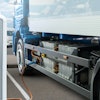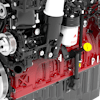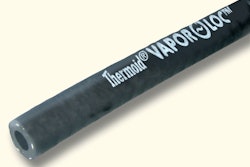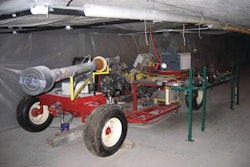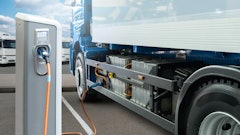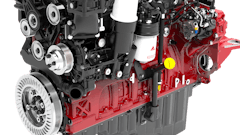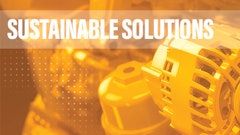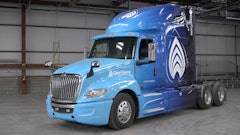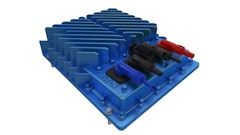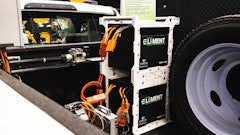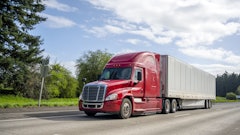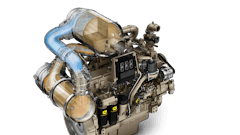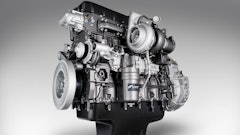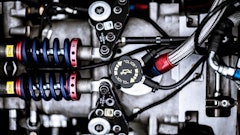Parker Hannifin Corp. has developed several cutting edge hydraulic hybrid technologies that improve the performance of refuse and delivery vehicles to levels that exceed proposed new federal fuel efficiency and emissions standards, and could soon be used on buses. The Environmental Protection Agency (EPA) and the Department of Transportation have proposed regulations that would require heavy duty trucks, including refuse vehicles, delivery vans and buses, to reduce fuel use and emissions by as much as 20% for model years 2014 through 2018. Parker's system can exceed these benchmarks today.
Extensive testing and field use indicates that Parker's RunWise advanced series hydraulic hybrid technology is the most effective system available for dramatically reducing fuel consumption and emissions even as it improves drivability and performance. The system is capable of reducing fuel use and emissions by as much as 50% depending upon the application and duty cycle.
Developed and tested with support from the EPA at its National Vehicle and Fuel Emissions Laboratory in Ann Arbor, Michigan, the technology is already in use on refuse vehicles in three South Florida communities and cities across the country are considering the new system. United Parcel Service (UPS) and Fed Ex have become the first companies to order a variation on the technology for use on delivery vehicles scheduled to be on the road in 2011. Parker is already developing further advancements in the technology for use on an advanced bus platform that is targeting a 45% reduction in fuel use over average diesel powertrains and which would be more than double the fuel reduction achieved with hybrid-electric systems.
"This is the first ever series hydraulic hybrid technology in commercial use and this technology is the highest efficiency powertrain that exists," Charles Gray, director of the EPA's Advanced Technology Division, said recently during South Florida ceremonies to deliver the first refuse vehicles to use the technology. "This technology can also produce the highest reduction in greenhouse gas emissions in these applications in urban environments of any technology we know. This is just the beginning and the future is bright for this technology."
Parker's advanced series hydraulic system is unique in that it disconnects the engine from the rear wheels of the vehicle. This de-coupling offers several advantages including: the ability to recover and store as much as 70% of the energy from braking, reduced brake wear, which extends brake life; an engine management system that optimizes the vehicle's engine for reduced fuel consumption; the ability to drive the vehicle with the engine off for short distances, significantly reducing carbon emissions in depots and contributing to reduced fuel consumption.
Extensive field testing of the technology since 2008 has been conducted in severe operating conditions, including high loads and repetitive start-stop cycles. The system performed well in extreme hot and cold weather, up and down mountain grades, over rough-roads, and through a variety of other severe-duty tests.
"Regardless of what standards end up being mandated, Parker has readily available technologies that dramatically reduce vehicle fuel use and emissions – that can yield truck operators significant savings over time," said Jeff Cullman, Group President, Hydraulics for Parker Hannifin. "The beauty of this system is that it makes use of well-proven technology that has been in use in rugged truck applications for many decades."


